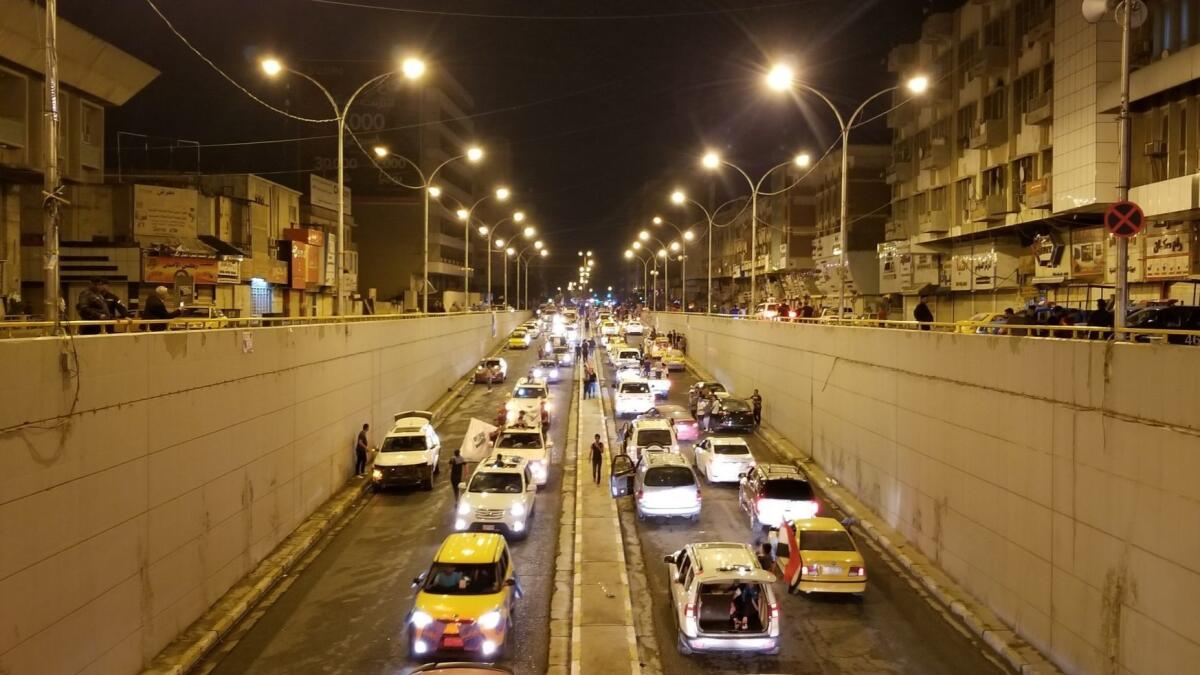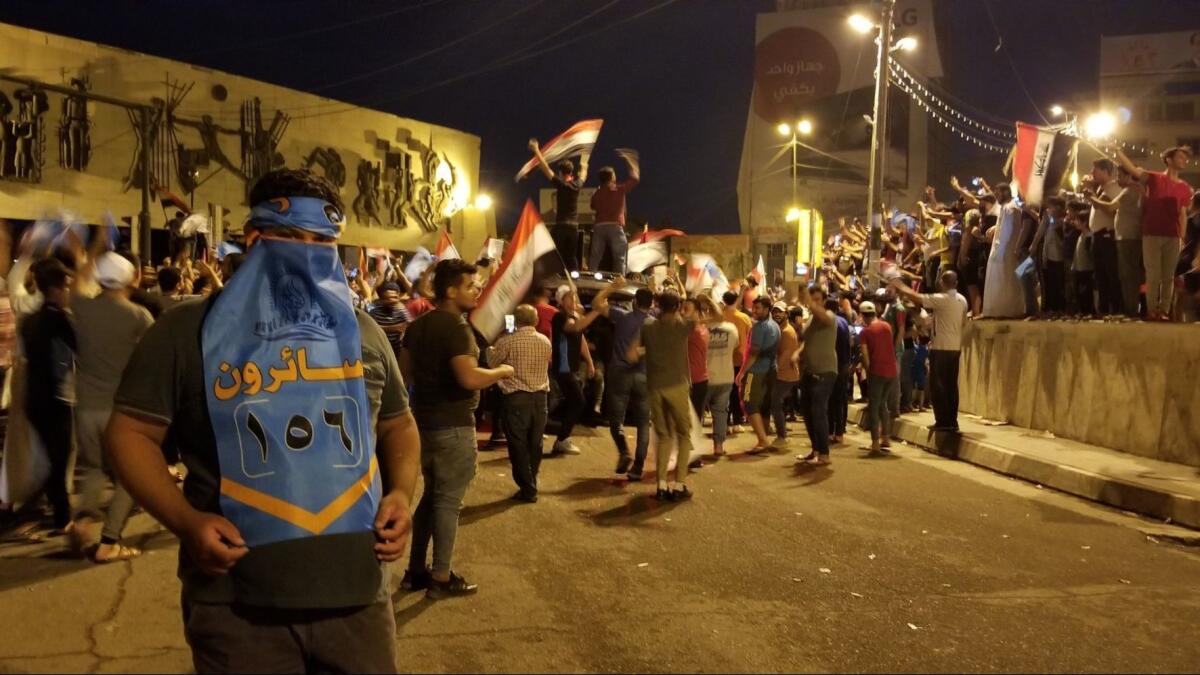Firebrand cleric Muqtada Sadr’s alliance holds a surprise lead in Iraq elections
- Share via
Reporting from baghdad — An alliance led by Muqtada Sadr, the anti-U.S. firebrand cleric-turned-reformist, was leading Iraq’s parliamentary elections in preliminary results announced early Monday.
A victory for Sadr would be a major upset for Prime Minister Haider Abadi, who led the country during its four-year battle against Islamic State and is supported by the U.S. and other Western nations.
Abadi was widely seen as the front-runner. But with the vote tallied in 10 of the country’s 19 provinces, he was in third, well behind both Sadr and an alliance of paramilitary factions, many of which are supported by Iran and led by Shiite militia leader Hadi Ameri.
The elections, the fourth since the 2003 fall of strongman Saddam Hussein and the first since the government defeated Islamic State, included some 7,000 candidates fighting for the country’s 329 parliamentary seats.
The official turnout, just under 45%, was the lowest since 2005, reflecting deep frustration after 15 years of malfeasance and corruption by the politicians who have dominated Iraq since the U.S invasion in 2003.

Results have yet to be tallied from nine provinces, including Nineveh — home to Mosul, the country’s second-largest city — and the three provinces comprising the semiautonomous Kurdistan region.
The Independent High Electoral Commission said those results would be officially announced later Monday and could still change the standing of various blocs.
The low turnout spurred several political groups to call for the results to be nullified, with many citing difficulties in using the electronic voting machines employed for the first time in this election as well as accusations of voter fraud.
The announcement of final results is likely to kick off a furious bout of horse-trading as the winning bloc attempts to form a coalition government within the mandatory 90-day period.
Over the last few years, Sadr, long dismissed as a political has-been who had once ordered his Jaish Al Mahdi militia to attack U.S. troops, has emerged as a nationalist figure, equally scornful of both U.S. and Iranian influence in the country.
He had positioned himself as an anti-corruption reformer, and in a move that surprised many, allied himself in the months before the election with leftist and communist groups as the head of the Sairoon bloc.
The strategy appeared to pay off, with Sadr’s anti-corruption message resonating in the capital, Baghdad.

His followers wasted no time celebrating the preliminary results, cheering and dancing as they flooded Baghdad’s Tahrir Square, waving the blue and orange flag of Sairoon along with the Iraqi flag.
As a station wagon topped with speakers slowly parted the masses, a crowd of men sang: “From his stare they fear him, no one dares to touch us, our Sayed is the flag [of our country], he attacks his enemies like a falcon, Sayed Muqtada.”
As he danced, Shaker Midhhab Hawaal, a 42-year-old worker who had come to Tahrir Square, said he “felt great happiness for Abu Hashem,” referring to Sadr by a nickname.
“He wants to reform the country from the corrupt.”
Another laborer, 30-year-old Khaled Kaabi, agreed.
“This is a high-level reformist revolution that was launched by the will of the people from a leadership that had never made peace with the [U.S.] invaders and has no sectarian bias,” he said.
“This area once rejected the masses, but today Sadr entered legally from the door and not the window.”
Bulos is a special correspondent.
More to Read
Sign up for Essential California
The most important California stories and recommendations in your inbox every morning.
You may occasionally receive promotional content from the Los Angeles Times.














